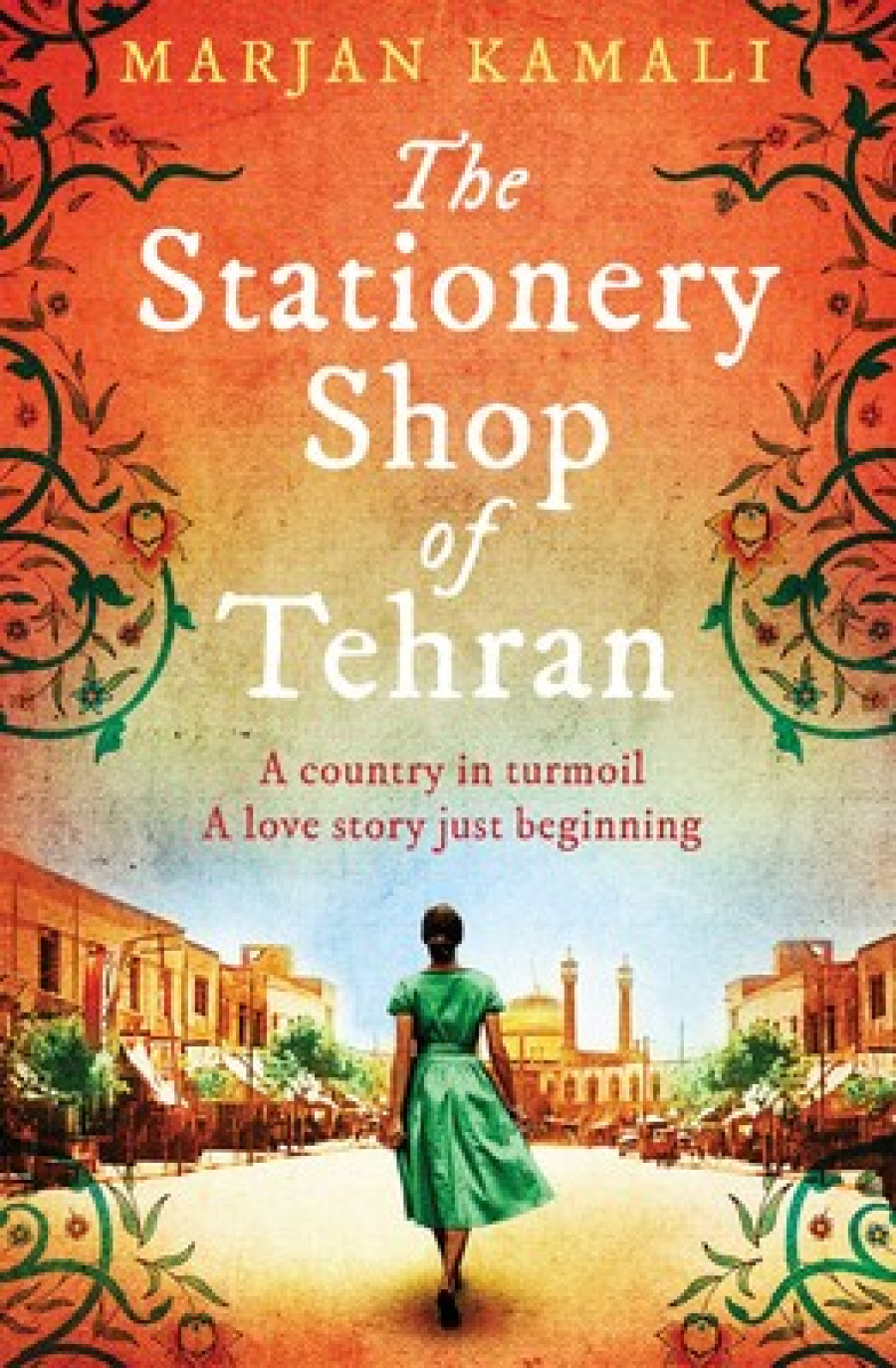Books
A love story to last a lifetime
Marjan Kamali’s ‘The Stationery Shop’ doesn’t offer anything innovative yet it is comforting, soothing, and welcoming, like a warm embrace.
Richa Bhattarai
The year is 1953. The country is Iran.
Prime Minister Mossadegh’s supporters are secretly rallying for him, gathering forces and frantically striving to stop his potential ouster. Meanwhile, the monarchists are in a frenzy, sniping at anyone who dares to speak up against their beloved Shah.
Amid this chaos, 17-year-old Roya finds her respite in a stationery shop in Tehran. Her father has big dreams for her education and she is equally enthralled by the rows of translated novels and poetry by Rumi. The kindly shopkeeper Mr Fakhri indulges her and her love for all things pen and paper.
Into this simple routine of learning and ideals, there enters a hurricane named Bahman. He is, Mr Farzi says, a “boy who will change the world.” He does indeed transform Roya’s world, for she is soon in love with him. He is even more besotted with her, and the unfolding of this teenage romance is one of the sweetest, most enchanting pieces of writing we’ve witnessed in recent times.
Their love story forms the crux of the novel, and we live with it for the next 60 years. The story remains charming throughout. There are unpredictable twists of fate, family interferences, misunderstandings, societal obligations, marriages, children, deaths. Characters fly over oceans and morph their nationalities. Yet this love, which could easily have withered and disappeared, is born afresh from every challenge and obstacle.
It is the kind of love we pine for, the love we hope we will find someday. Kamali breathes life into this love, until it pulses and glows and simmers. Her prose shines when she describes the longing, heartache and passion between the two young beloveds. To make someone feel the love brimming on the pages, that is where this novel emerges a winner.
The story is tender but rarely cloying, heartfelt yet not too cliched. The story does falter when it tangles around a second love story; there are moments too dramatic and far-fetched. There are also plenty of instances when the dialogues veer towards the mundane, and the setting remains merely superficial. But the novel manages to revive itself, re-erect its fabled universe, and make us keep reading as we decipher the end to this lifelong love.
Kamali is a blessed writer, someone who has been granted the power to insert feelings into mere words. The language is nothing new, innovative, or even bedazzling. We have read and known plenty of stories like this before. Yet it is comforting, soothing, and welcoming. There is an invitation to be part of the family, and if we accept, there awaits a warm embrace. We are oriented to the country, its customs, politics, culture, history, people.
The bond of loyalty and trust, along with the characterisation of strong women, bear a slight resemblance to novels by Khaled Hossieni, Nadia Hashimi, even Kamila Shamsie. But ‘The Stationery Shop’ frequently renders itself unique through the uniqueness of the culture and society it is spun of.
To Nepali readers, the novel has something more to offer.
Iran is a country so far away from Nepal, so dissimilar, we could say. Yet Nepali readers will definitely find striking resemblances between the two countries, which will make it dear. And perhaps to readers of many South Asian nations. Just like Nepal, after a series of coups and counter-coups, monarchy was abolished in Iran, a few decades before ours.
When they first meet, Roya asks Bahman, “You’re siasi—political—no?”
“Is there anyone in this country who isn’t?” Bahman responds.
How apt, and how similar to our country, where the vast majority is utterly “political”, though what good those inclinations ever did, we do not know.
Even more saddening is the realisation that no amount of revolutions and civil society moments is actually going to result in anything other than one more corrupt leader. In 1978, Bahman writes, “History repeats itself. To watch these young students pour into the streets again, convinced that if they rid themselves of the Shah all problems will be solved, is painful… We want democracy but never seem to get it.”
The following year, Bahman writes again, “Now the Shah is gone. All I see in the faces of us who remember 1953, who can feel under our skin that awful disappointment of having the world plummet in one day, is the return of trauma. The youth are so hopeful. They think we got it right this time.”
How many times have we thought that we have got it right, only to be shown we were terribly wrong!
Just like our belief that the Goddess Vidhata inscribes the fate of each child on their sixth day, in Iran, too, it is believed that a person’s destiny is already written on their forehead, and nothing can change it.
And finally, the similarities in cuisine. Not the actual dishes per se, but the longing for recipes from home that you can never seem to replicate in a foreign country.
In a recent Clubhouse chat, I had asked, “What do you miss the most about the homeland?” Among a clamor of “bhyarra momo” and “chatpate”, a lady answered, “The strong, heady fragrance of spices as I walk along Ason.” How specific and particular our memories are, and what a common trigger of nostalgia food is.
When Roya walks into a delicatessen that sells “spices and teas and jams from the old country,” she “wanted to sweep everything on the shelves into her skirt and run off, carrying jars of every single spice that she had missed so much. A piece of her had come home.”
Truly, Kamali’s writing is as familiar as coming home, too.
She treats her recipes with such affection, her descriptions of food are a delight. The saffron and khoresh, ghormeh sabzi and tahdig seem to cook on the pages and stain our lips with their taste.
We read the novel for its love story, and how much more it leaves us with.
——————————————————————
The Stationery Shop of Tehran
Author: Marjan Kamali
Pages: 312
Publisher: Simon & Schuster




 17.12°C Kathmandu
17.12°C Kathmandu










